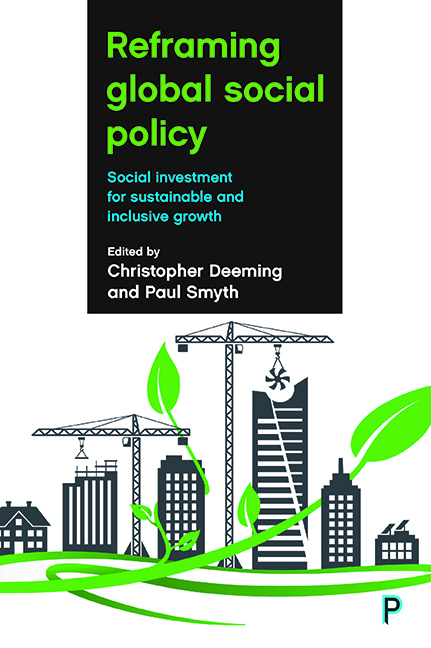Three - Making growth inclusive: perspectives on the role of social policy in developing economies
Published online by Cambridge University Press: 12 April 2022
Summary
The current focus on ‘inclusive growth’ seems to offer a renewed promise of integration between social and economic concerns in development processes. This relationship has been turbulent: major shifts in mainstream economics since the launch of the development project in the post-war period have determined or constrained the space for social policy ideas and practice. This paper reviews the ways in which dominant economic development paradigms have dealt with the social question alongside debates around social policies and their role in the changing development landscape. It provides a brief overview of post-war perspectives on social policy in development – from postwar Keynesian macroeconomics, through debt crisis and the neoliberal ‘Washington Consensus’ years, towards a renewed attention to social concerns as reflected in global development goals and an emerging focus on making growth ‘inclusive’.
The role social policies have played in development contexts – and how they are understood – has varied across time and place: from complementarity in supporting growth and determining longterm developmental possibilities (as in the Nordic countries and developmental states of East Asia), to the minimalist provision of safety nets as residual to the core economic growth agenda epitomised by the Washington Consensus years. This ambiguous relationship is frequently presented as a trade-off – between economic growth or efficiency on the one hand, and equity (or broader social welfare outcomes) on the other. As a field of inquiry, social policy has itself remained on the margins of mainstream development debates – a field generally dominated by the economic orthodoxy of the moment, and in which GDP rather than any social indicator retains its primacy as the development metric of choice whether for national growth or individual wellbeing. Relatedly, developing country contexts have until recently remained outside the growing body of scholarship on comparative social policy and welfare regimes which has focused largely on rich countries, reinforcing the notion that social policy is the domain of the wealthy, and an aspiration for poor countries only at a later stage of their development.
- Type
- Chapter
- Information
- Reframing Global Social PolicySocial Investment for Sustainable and Inclusive Growth, pp. 77 - 98Publisher: Bristol University PressPrint publication year: 2017



